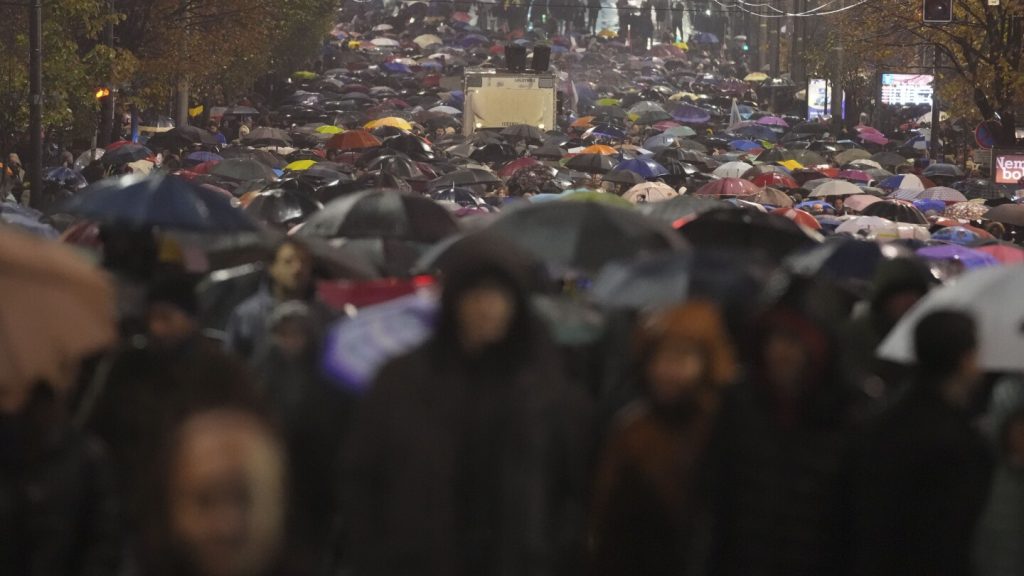The anti-government protesters in Serbia are demanding arrests and the resignations of top officials following the deadly collapse of a concrete roof at a railway station in Novi Sad, which resulted in the deaths of 14 people. The protesters blame the collapse on corruption and sloppy renovation work, linking it to a wider deal with Chinese state companies involved in infrastructure projects in the Balkan country. Former mayor Borislav Novakovic accused the ruling populists of prioritizing their own interests over the safety of the people, leading to the loss of lives. The crowd chanted “jail” in response to these accusations and demanded accountability from the government.
Despite ongoing investigations and the resignation of Serbia’s construction minister last week, no one has been charged or detained in connection with the accident that occurred on November 1. The latest rally in Belgrade was peaceful, in contrast to a previous protest in Novi Sad where masked individuals resorted to violence by throwing rocks, bottles, and red paint at City Hall. Police used tear gas to disperse the rioters in that incident. The lack of immediate accountability has fueled further anger among the protesters, who continue to call for the resignation of Prime Minister Milos Vucevic and his government, as well as the arrest of those responsible for the collapse.
Government officials have vowed to hold individuals accountable for the tragic incident, but there is widespread skepticism among the public due to the fact that the populists in power also control the police and the judiciary. The protesters believe that without external oversight, true justice may not be served in this case. The railway station in Novi Sad, originally built in 1964, underwent two renovations in recent years and was inaugurated by Serbia’s President Aleksandar Vucic and Hungarian Prime Minister Viktor Orban. It was meant to be a key stopover for the planned fast train line between Belgrade and Budapest, highlighting the significance of the infrastructure project.
The calls for resignations and arrests come as a response to the perceived negligence and corruption that led to the tragic collapse at the railway station. The protesters demand transparency and accountability from the government in handling the aftermath of the incident and ensuring that such tragedies do not recur in the future. The involvement of Chinese state companies in the infrastructure projects adds another layer of complexity to the situation, raising questions about oversight and safety standards. As the investigation continues and pressure mounts on the authorities, the eyes of the Serbian public remain focused on the outcomes of the ongoing developments and the actions taken by those in power to address the concerns raised by the protesters.
The peaceful protests in Belgrade and Novi Sad reflect the growing discontent among the Serbian population regarding issues of corruption, negligence, and accountability within the government. The demand for resignations and arrests signals a desire for justice and a commitment to holding those in power responsible for their actions. As the authorities navigate the aftermath of the railway station collapse, they face increasing pressure from the public to deliver tangible results and ensure that such tragedies are not swept under the rug. The coming days and weeks will be crucial in determining the course of action taken by the government and the level of transparency and accountability demonstrated in response to the protesters’ demands.















